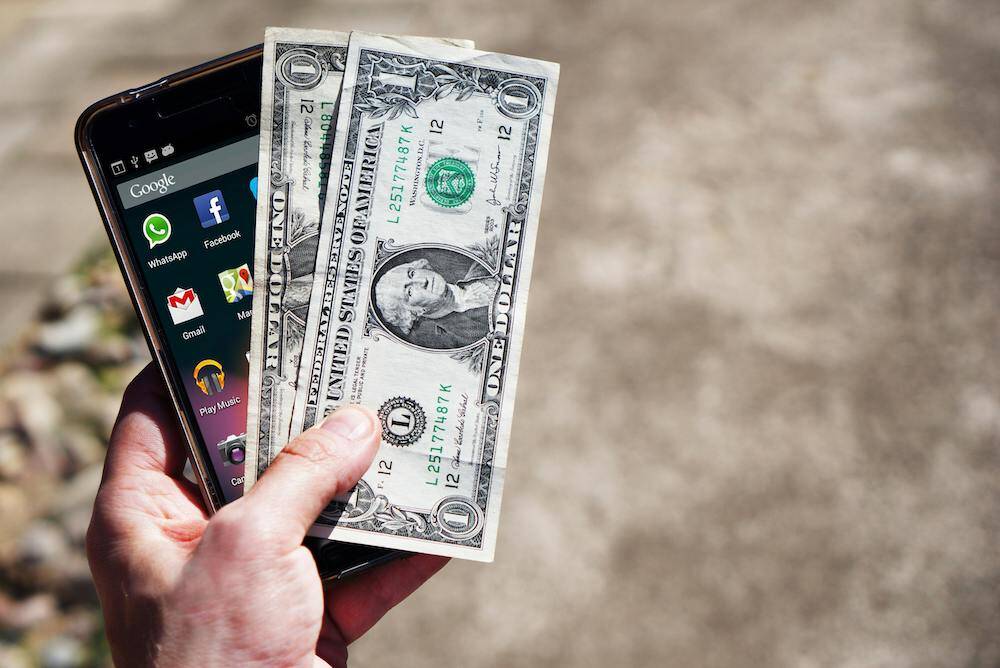Imagine checking your phone and seeing a notification: "You've received $500!" Exciting, right? But before you celebrate, you notice something odd—the sender’s name looks unfamiliar. A few moments later, another message arrives: "Oops! That was a mistake. Can you send it back?"
Related Article: Important Update: Changes to Zelle® and What It Means for Liberty Savings Bank Customers
This is just one of the many scams plaguing Cash App, Venmo, and Zelle users.
In 2023 alone, over 65,000 reports of fraud involving digital payment apps were filed with the Federal Trade Commission (FTC). Scammers love these apps because transactions are fast, often irreversible, and, in most cases, lack fraud protections. If you’re not careful, that convenience can come at a cost—your hard-earned money.
Let’s break down four of the most common scams happening on these platforms and, more importantly, how you can avoid falling victim.
1. The "Accidental" Payment Scam
A scammer sends you money out of the blue. Shortly after, they contact you, claiming it was a mistake and asking you to return the funds. You, being a good person, send the money back. But here’s the catch: The scammer originally used a stolen credit card or bank account. Once the real owner reports fraud, the transaction is reversed—except only your refund gets deducted, not the scammer’s initial payment.
How to Avoid It:
- Do not send money back. If you receive a suspicious payment, leave it alone.
- Contact the app’s support team immediately. They can investigate and potentially reverse the fraudulent deposit.
- Block the sender. If they’re a scammer, they’ll likely try to target you again.
2. The Fake Seller Scam
You find an amazing deal on concert tickets, a gaming console, or even a used car. The seller asks for payment through Venmo, Cash App, or Zelle. You send the money. And then? Poof. The seller disappears, leaving you with nothing but regret.
Unlike credit cards, these apps offer no buyer protection. Once you send money, it's nearly impossible to get it back.
How to Avoid It:
- Never pay strangers using payment apps. If you must, use platforms that offer purchase protection (like PayPal Goods & Services).
- Verify the seller’s legitimacy. Check reviews, ask for live video proof, and avoid too-good-to-be-true deals.
- Use a credit card for online purchases. They offer better fraud protection than direct transfers.
3. The "Fake Customer Support" Scam
You have an issue with your Cash App or Venmo account, so you Google "Cash App customer support" and call the first number that pops up. Bad news: it’s a scammer posing as a representative.
They ask for your login credentials or convince you to send them money as a "verification" step. Before you know it, your account is drained.
How to Avoid It:
- Never call random phone numbers found on Google. Payment apps rarely offer phone support. Visit their official website for verified contact info.
- Never share your login details. Real support reps will never ask for your password or request payments.
- Enable two-factor authentication. This adds an extra layer of security to your account.
4. The "Pretend Friend or Family" Scam
You get a text from someone pretending to be your friend or family member. They claim they’re in an emergency and need money ASAP. Maybe they say they lost their wallet or got into an accident. The message is urgent and emotional—designed to make you act fast.
But here’s the truth: It’s a scammer impersonating your loved one, hoping you’ll send money before you think twice.
How to Avoid It:
- Verify before sending money. Call or video chat the person directly to confirm their identity.
- Be skeptical of urgent payment requests. Scammers rely on pressure tactics.
- Set up a "safe word." Agree on a phrase only you and your loved ones know, to verify identity in emergencies.
How to Stay Safe When Using Payment Apps
- Only send money to people you know. If you wouldn’t hand them cash in person, don’t do it digitally.
- Double-check usernames before sending. Scammers create accounts with similar handles to trick users.
- Enable security features. Use PINs, biometrics, and two-factor authentication.
- Regularly review transactions. The sooner you spot fraud, the better your chances of stopping it.
- Be wary of deals that seem too good to be true. They usually are.
Final Thoughts
Cash App, Venmo, and Zelle are incredibly convenient, but with that convenience comes risk. Scammers are getting more sophisticated, but armed with the right knowledge, you can keep your money safe.
The bottom line? Think before you send. A little skepticism can save you a lot of money—and a huge headache.
Stay smart. Stay secure. And, most importantly, keep your hard-earned cash where it belongs—in your pocket.


.png?width=1200&height=400&name=Personal%20Loan%20(5).png)
